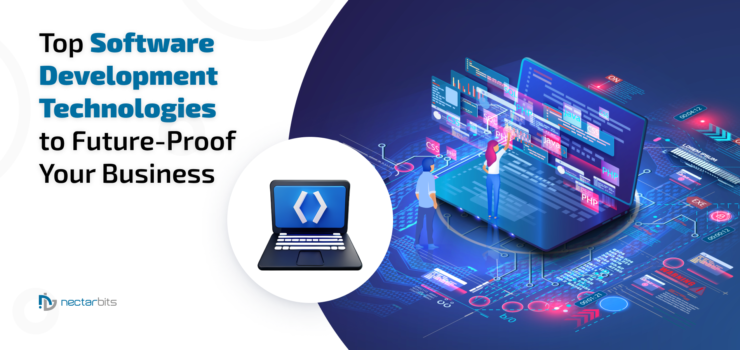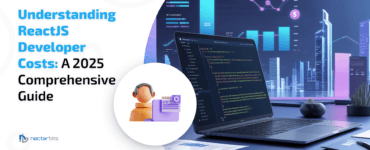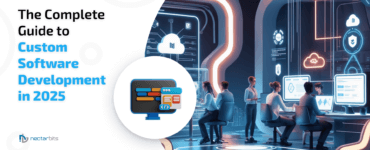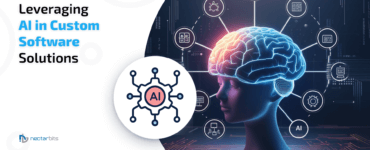As the digital landscape around us aims to modernize every part of the personal and corporate life we are familiar with, innovative software technologies are working overtime to ensure regular revolutions within the vast world of innovative software development technologies that continue to increase in size and revenue. If you are a business owner in this rapidly adapting landscape, leveraging and incorporating these software technologies within your organizational structure is no longer a choice but a necessity.
Traditional methods regularly need to catch up to the new demands of users globally, with only innovative software technologies like AI, ML, and IoT capable of fulfilling such complex demands. With software development technologies undergoing significant transformations over the last decade, innovations have overturned the understanding of businesses globally, as each sector tries to improve upon its products and optimize its software development costs and planning by utilizing such incredible technological innovations.
This blog explores how cutting-edge software development technologies can enhance your development process and ensure your business is sustainable in an era of innovative software technologies and trends. Understanding the benefits and the procedure for incorporating these technologies within your software development cycle is paramount to ensuring survival against competitors or the ever-changing tides of new bleeding-edge software innovations.
1. Artificial Intelligence and Machine Learning: Success through Automation and Optimisation
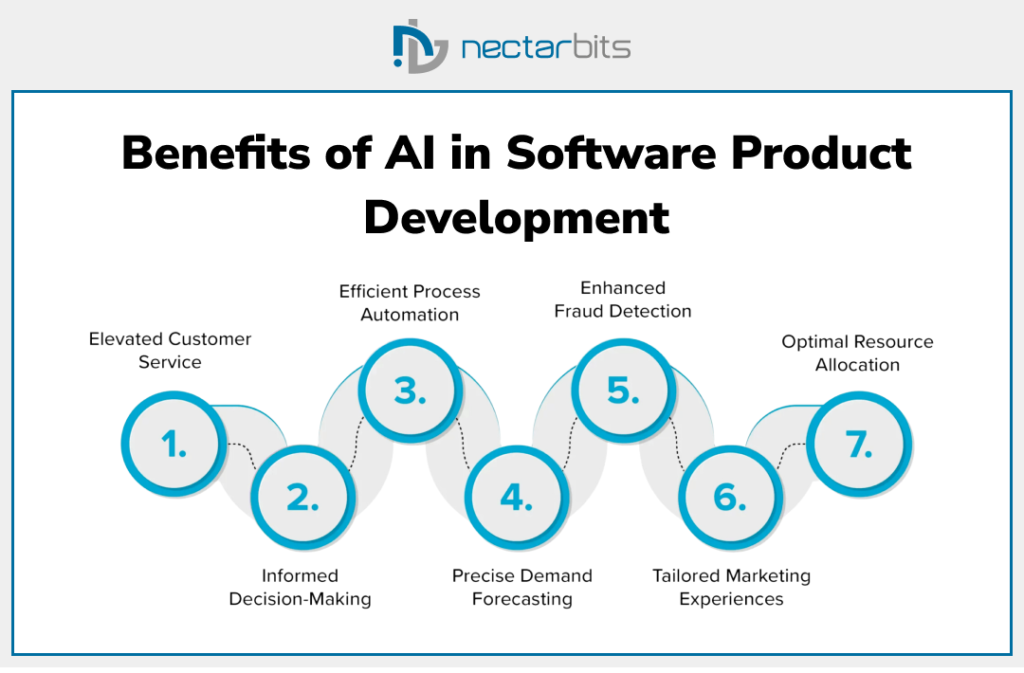
At the forefront of these software development technological innovations is the familiar terminology of AI and ML, two of the most interesting and useful tech innovations in recent years. Offering a myriad of benefits in a wide variety of industry verticals, AI can carry out automated repetitive tasks and predict potential issues using data analytics. Gartner reports that AI-driven enterprises are well on track for outperforming at least 25% of their non-AI competitors.
Thus, AI and ML are rapidly becoming software development technologies that business owners need to consider in their planning and implementation. These technologies ensure better survivability against their competitors and better revenue and development optimizations for new software product developments.
- Automation: AI can automate several mundane tasks, including error detection, code reviewing, and data analysis. This allows developers to focus their efforts on actual coding instead of merely reviewing their work manually. AI counterparts like DeepCode are great examples of how AI can analyze code and suggest changes on the go, improving the overall quality and reliability of the code.
- Predictive Analysis: The ML algorithm can provide strategies using past analytics to help solve potential issues and prevent future problems through optimal resource allocation and project timeline management. Using these software development technologies can thus reduce development costs while improving employee morale and the sustainability of projects or company goals in the long run.
2. Blockchain Development: Enhancing Security with Added Data Transparency
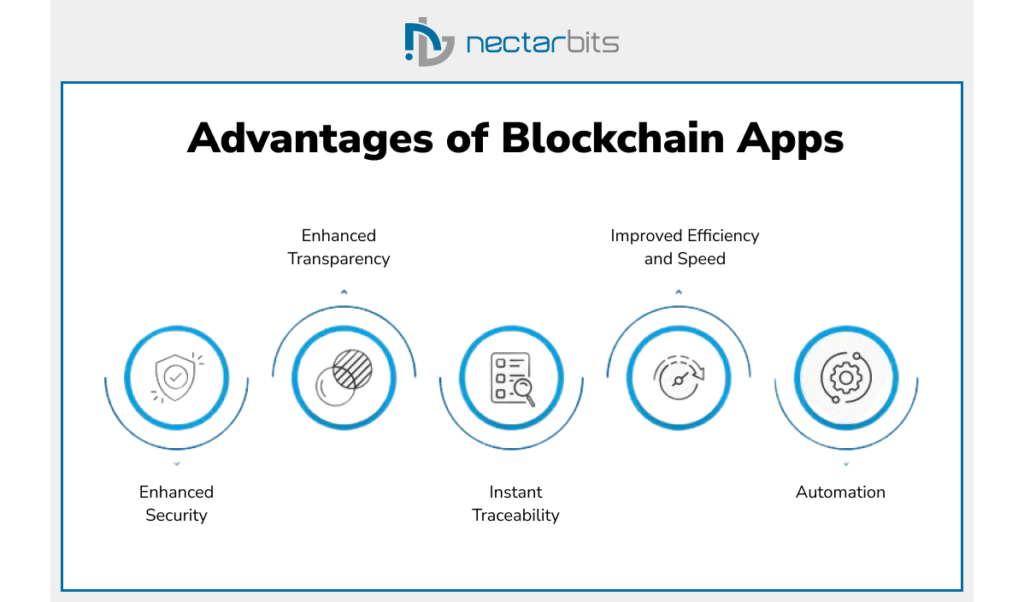
Blockchain technology is a new way to diversify user and company data using peer-to-peer networks without the security vulnerabilities associated with a centralized server array. This technology, primarily associated with cryptocurrency, has a profound implication on new software product development, ensuring better tamper-proof transactions and highly secure applications.
Blockchains are unique compared to other custom software development technologies. They utilize the power of a decentralized network and provide an innovative data storage and sharing solution. This is primarily why multiple companies use Blockchains globally to solve cybercrime and data leak vulnerabilities in their current architecture.
- Better Security: Blockchains provide a unique software product development opportunity. Their inherent security measures make them ideal for applications that require high data integrity to create secure supply chain solutions. Companies like IBM already use such blockchains to provide solutions across the finance and healthcare industries.
- Smart Contracts: Another popular use case for blockchains is to provide digital agreements directly written with code with self-execution functionality to ensure both parties don’t face scams or fraud. Smart contracts can go beyond this use case and offer complex workflows that ensure high-intensity corporate-level agreements are carried out without intermediaries or lawyers.
3. Internet of Things (IoT): Providing Connected Experiences Globally
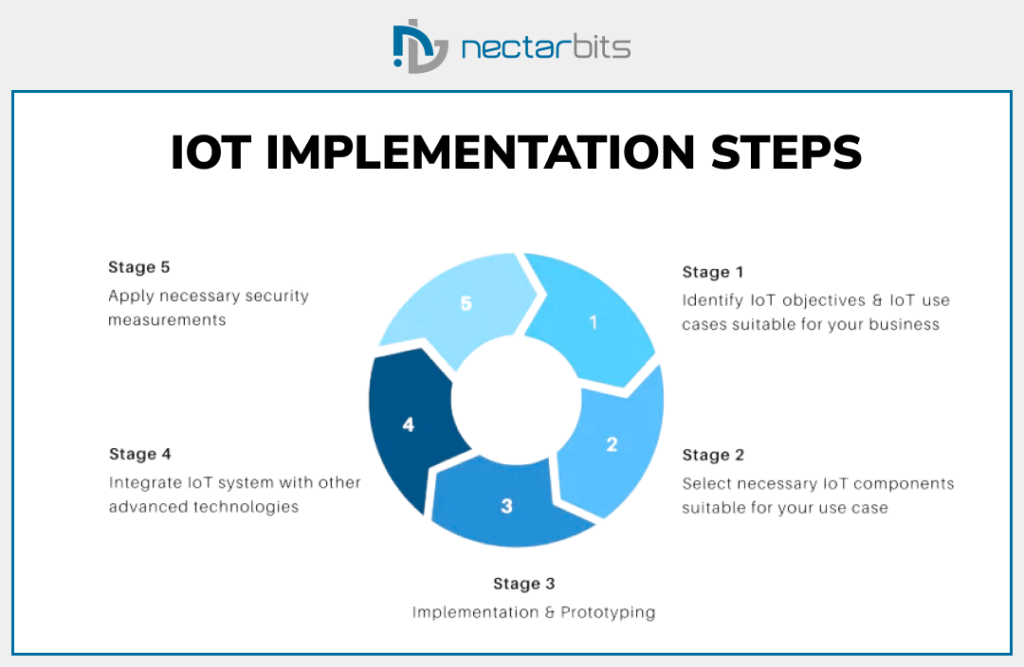
The revolution of internet-connected peripherals seeps into the IoT revolution that enables most everyday devices and appliances to be connected and controlled through internet-connected commands. Statista predicts that over 75 billion IoT-connected devices will be circulating worldwide by 2025, owing to their sheer popularity across corporate environments and modern households.
- Data Collection and Analysis: IoT devices let users generate and analyze a large amount of data about how they use their appliances, including stats like power efficiency and uptime, which can be crucial for businesses to predict resource shortages or save costs by optimizing their interaction with such devices on a company-wide scale. This data-driven approach unlocks more intuitive opportunities and applications with scope for predictive maintenance, as the device can now report failures even before they occur.
- Enhanced User Experiences: IoT software development technologies empower users to control their devices on the go, lifting the physical barriers of manual switches or IR remotes. Now, users can control their devices through an app on their smart device, allowing a more personalized experience with automated routines and creating a more cohesive grouping that enables a single command to change lights, security, and even climate.
Read More:- Top 10 Popular IoT Development Tools That You Must Know
4. Cloud Computing: The Future of Scalable Software Development
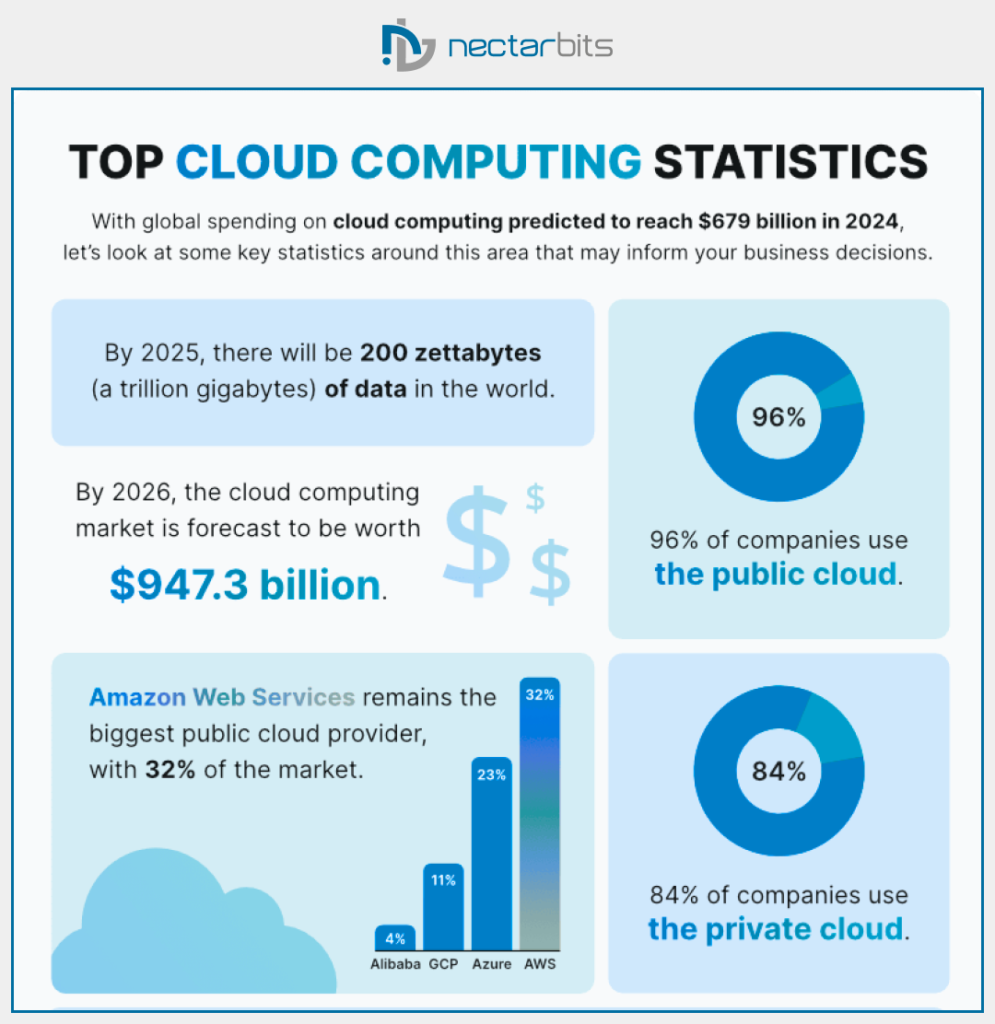
Digital computing through the cloud is fast becoming the cornerstone of modern innovative software development processes. Its uniquely positioned venture allows unparalleled scalability, collaboration, and flexibility in its architecture. Flexera’s State of the Cloud Report reports that 94% of enterprises use cloud services to fulfill their needs, reflecting just how critical and popular these software development technologies have become in such a short period since their inception.
- Better Scalability: Popular cloud service providers like AWS, Azure, and Google Cloud offer a boundless scalable infrastructure capable of growing according to your growing user traffic and needs. This ensures that any business utilizing their services can deploy more applications and market towards a wider user demographic without the worry that their current infrastructure cannot handle this added server pressure or worry about a loss in efficiency or performance.
- Team Collaboration: One of the best benefits of innovative software development technologies like Cloud Computing is that it facilitates better collaboration between distributed teams. This is because developers can now utilize such cloud-based solutions to work together in real-time, even in different parts of the world. Tools like GitHub and GitLab and office tools such as Google Docs and Sheets are prime examples of how cloud computing has completely revolutionised the definition of collaborative working environments.
5. DevOps: Connecting Development with Operations
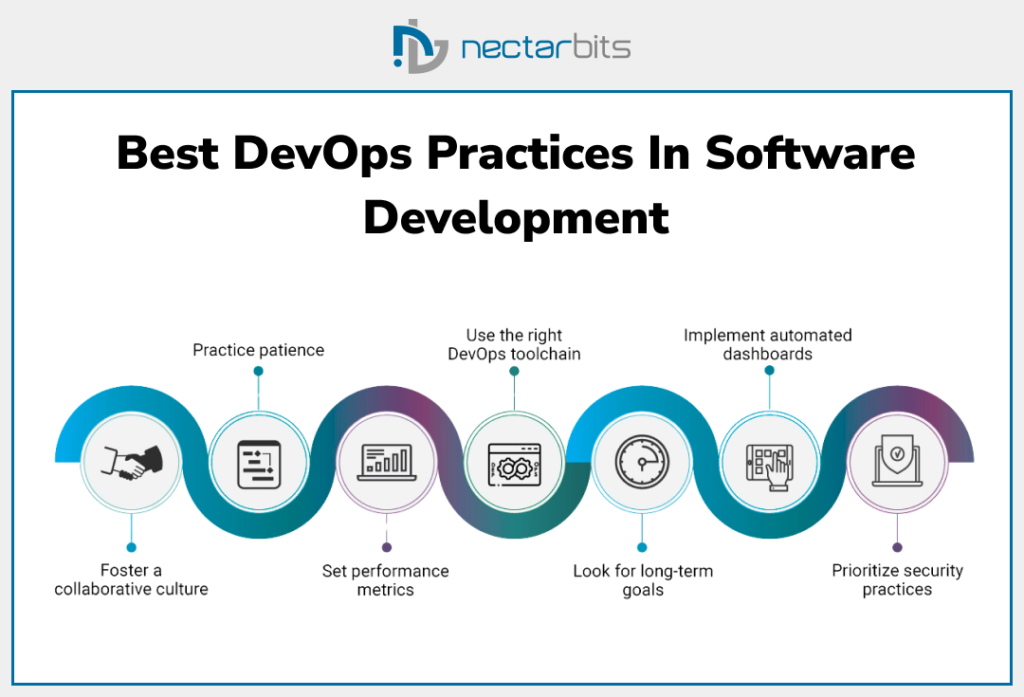
DevOps is part of an innovative software development process that combines the procedural elements of software development (Dev) with IT operations (Ops) to provide high-quality and innovative software development solutions with a shorter development cycle. This adoption of DevOps has resulted in agility and responsiveness in enhancing software development solutions and making the best use of these two development fractions.
- Continuous Integration/Deployment (CI/CD): DevOps emphasizes automation in this integration and deployment cycle, ensuring that every line of code is automatically tested and approved while it is being written. This means that when it’s time to deploy the code, it is already ready for release and has fewer errors. A report by DORA (DevOps Research and Assessment) confirms this hypothesis by showcasing that DevOps performers deploy 208 times more frequently and 106 times faster than their peers.
- Better Communication: Combining these two fractions to formulate innovative software development technologies also creates a collaborative environment between the company’s development and operations teams, resulting in more sustainable products and quicker issue resolution.
Conclusion: Embracing the Future of Software Development
Adapting innovative software technologies in software development is not merely a phenomenon of fashion but a revolution that enhances advantages in many ways. These are automation by artificial intelligence, security with the blockchain system, IoT connectivity, cloud scalability, and collaboration enabled by DevOps services.
When markets are on a slippery slope, as many are in the digital age, the best strategy is to leverage these software development technologies to improve development processes and offer the customer an unparalleled value proposition. The future looks promising for software development, and incorporating these innovative software development technologies will give your business the advantage it deserves.
FAQs
AI and ML can automate repetitive tasks, predict potential issues, and optimize resource allocation, leading to faster and more efficient development processes.
Blockchain’s decentralized nature ensures data integrity and transparency, making it ideal for developing secure applications and reducing the risk of cyber threats.
IoT enables the creation of connected applications that offer seamless and personalized user experiences, leveraging data from connected devices to inform development decisions.
Cloud computing offers scalable infrastructure and collaboration tools, allowing developers to deploy applications quickly and work together effectively, regardless of location.
DevOps is a set of practices that combines development and operations to shorten the development lifecycle and improve software quality through automation and collaboration.


